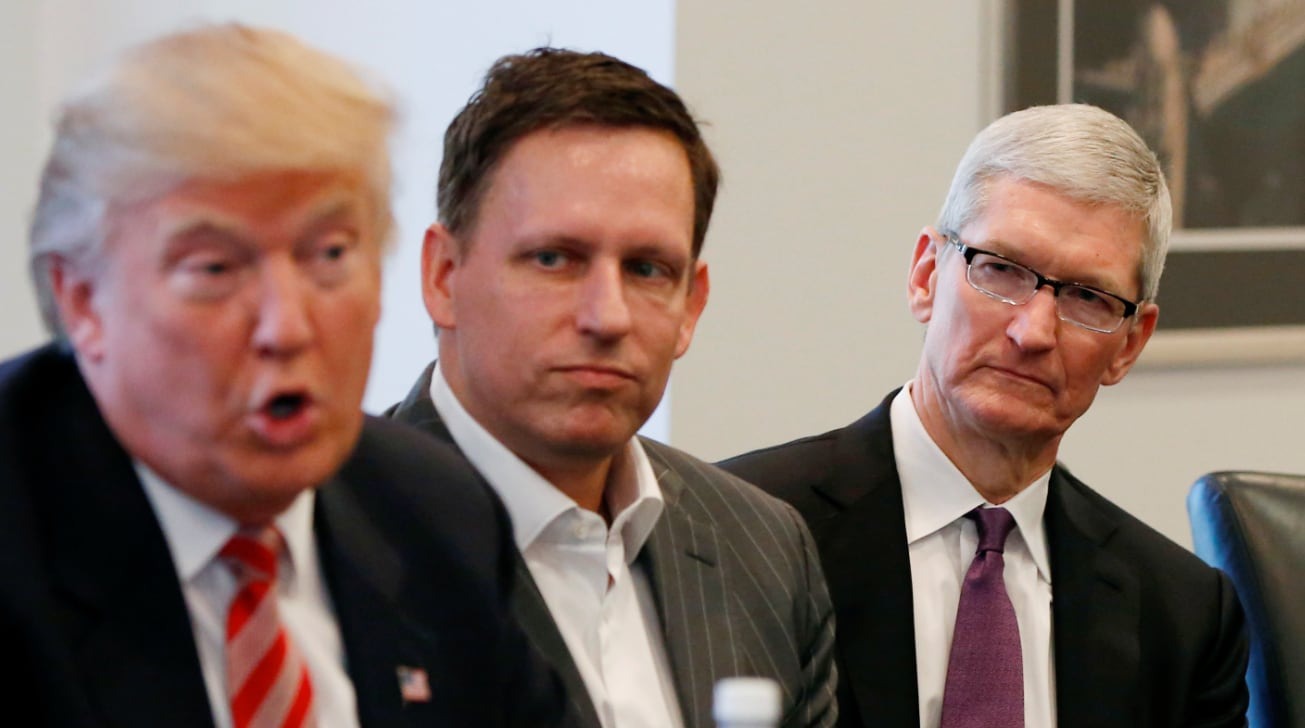Apple has joined a long list of tech companies in filing an amicus brief, one that claims an executive order suspending foreign work visas like the H-1B visa is does more harm to US workers and the economy than good.
In June, President Donald Trump signed an executive order that suspended foreign work visas. The suspension stopped visas such as the L-1 visa, used to transfer overseas staff to the United States, and the H-1B, used to employ graduate-level workers in speciality occupations, from being issued, a move at the time garnered criticism from many business leaders.
An amicus brief filed at the US District Court for the Northern District of California by a list of 52 tech companies on Monday formally opposes the executive order, one aimed at protecting "unemployed Americans from the threat of competition for scarce jobs." The brief claims the law demands the President to ensure such actions will further "the interests of the United States," but that the suspension fails to meet that barrier.
"Indeed, the overwhelming weight of evidence and the experience of amici-leading corporations, trade associations, and other business-oriented organizations - make clear that the suspension of these vital non-immigrant visa programs will stifle innovation, hinder growth, and ultimately harm US workers, businesses, and the economy more broadly in irreparable ways," the brief reads.
It argues that the order was presented with "virtually no factual findings" and "minimal reasoning" to support the signing as being beneficial to the country. In the immediate aftermath, competing nations including Canada, China, and India are "pouncing at the opportunity to attract well-trained, innovative individuals" while businesses in the US "are scrambling to adjust" to the changes.
"The Proclamation did not consider these costs," the brief insists. "It was based on the false assumption that the suspension would protect domestic workers. In fact, amici and American businesses more broadly will continue to be irreparably damaged by the Proclamation, to the detriment of their workers and customers, the broader economy, and the future of American innovation and leadership."
Apple CEO Tim Cook is quoted in the brief as saying he was "deeply disappointed by the proclamation," and that "This nation of immigrants has always found strength in our diversity, and hope in the enduring promise of the American Dream. There is no new prosperity without both."
Observations from other company chiefs including Microsoft President Brad Smith, Google CEO Sundar Pichai, and PayPal CEO Dan Schulman are also raised in the brief, among others.
"Irreparable harm on business"
The core argument about the brief is that the visa programs have a "well-established and documented track record of benefiting the US economy," with research claiming "H-1B visa holders do not adversely affect U.S. workers," and that the program increases "innovation, productivity, and profits" while empowering other workers. A similar argument is made for H-2B visas, while the L-1 visa "keeps jobs in the US" while still operating as a useful tool for a global marketplace.
At the same time, the brief insists the proclamation "will continue to impose irreparable harm on businesses and the nation's economy," with many businesses recognizing the threat to growth with their removal. It is further suggested the suspension is "likely to drive talent abroad to the detriment of the US economy and the benefit of its global competitors."
"For many decades, this country has been a magnet to these talented people, who have - along with U.S.-born workers and innovators - made our economy the most dynamic in the world," the brief concludes. "The Proclamation prevents U.S. companies from attracting the world's best and brightest, and deprives those innovative, highly-skilled individuals of opportunities to further America's short-term recovery and long-term economic growth."
 Malcolm Owen
Malcolm Owen


 Marko Zivkovic
Marko Zivkovic
 Mike Wuerthele
Mike Wuerthele
 Christine McKee
Christine McKee
 Amber Neely
Amber Neely
 Wesley Hilliard
Wesley Hilliard

 William Gallagher
William Gallagher









